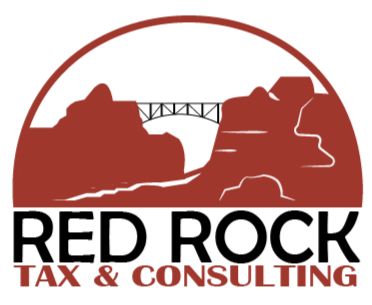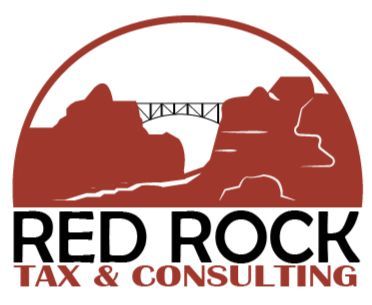A Comprehensive Guide to Optimizing Inventory Management for Small Business Growth

Managing inventory is a crucial aspect of any business, big or small. For small businesses, the key to success lies in effectively managing their inventory to ensure efficient operations, satisfied customers, and ultimately growth. However, inventory management can be a daunting task, especially for small business owners who are already juggling multiple responsibilities. But fear not, as we are here to guide you through the process of optimizing your inventory management for maximum growth potential.
Understanding the Basics of Inventory Management
Before we dive into the nitty-gritty of optimizing inventory management, it's important to have a solid understanding of the basics. Inventory management refers to the processes and techniques used to track, manage, and maintain a business's inventory. It involves everything from purchasing, storage, and stock control to forecasting, ordering, and replenishing. Here are some key components of inventory management that every small business owner should be familiar with:
- Inventory Classification: Inventory can be classified into different categories such as raw materials, work in progress, finished goods, and goods for resale. Understanding these classifications and their different characteristics is essential for effective inventory management.
- Inventory Turnover: This refers to the number of times a business's inventory is sold and replaced in a given period. A high inventory turnover is considered favorable as it indicates efficient management and faster sales.
- Safety Stock: This is extra inventory that businesses keep on hand to ensure they have enough stock to meet unexpected increases in demand or delays in suppliers. It acts as a buffer to prevent stockouts and keep customers satisfied.
Assessing Your Inventory Management Needs
Each business is unique and has different inventory management needs. Before implementing any strategies, it's essential to assess your current inventory management system and identify areas that need improvement. Here are some questions to consider while assessing your inventory management needs:
- What is the current state of your inventory? Do you have excess or obsolete inventory that needs to be cleared out?
- Are you constantly facing stockouts or overstocking issues?
- What is the demand for your products? Is it seasonal or consistent throughout the year?
- How often do you replenish your stock? Do you have a reliable supplier network?
- How long does it take for your products to reach customers once an order is placed?
- Do you have a system in place for tracking inventory levels and sales?
- What is the cost of storing and managing your inventory?
- How much working capital do you have available to invest in inventory?
Implementing Inventory Management Strategies
After assessing your inventory management needs, it's time to implement strategies that will help optimize your inventory and lead to business growth. Here are some tried and tested techniques that have proven to be effective for small businesses:
- Use Inventory Management Software: Investing in good inventory management software can be a game-changer for small businesses. These tools can track and manage inventory levels, monitor sales, generate reports, and automate reordering processes, saving you time and reducing the chances of human error.
- Adopt the Just-In-Time (JIT) Inventory Method: This inventory management strategy involves ordering and receiving products just in time for them to be used or sold. It helps minimize excess inventory and saves storage costs. However, this method requires effective communication and coordination with suppliers to avoid stockouts.
- Leverage Inventory Forecasting: Forecasting involves predicting future demand for products based on past sales data, market trends, and other factors. It can help you make informed decisions about how much inventory you need to keep on hand, increasing efficiency and reducing the chances of overstocking.
- Set Up Automatic Reordering: Automatic reordering systems use preset triggers such as minimum inventory levels to automatically generate purchase orders. This ensures that you never run out of stock and saves you the hassle of manually placing orders.
- Utilize the ABC Analysis Technique: The ABC analysis ranks inventory items based on their value and importance to the business. It helps prioritize which items need more attention and resources for effective inventory management. For example, high-value products that contribute significantly to revenue should be given more attention than low-value items.
Best Practices for Small Business Inventory Management
Apart from the strategies mentioned above, here are some additional best practices that can help small businesses optimize their inventory management:
- Regularly review your inventory: Set aside time each month to review your inventory levels, identify slow-moving products, and adjust your stock levels accordingly.
- Keep organized and accurate records: Maintaining accurate inventory records is crucial for decision-making and identifying potential issues. Invest in a reliable tracking system and conduct regular physical counts to reconcile inventory levels.
- Monitor cash flow: Inventory takes up a significant chunk of a business's working capital. It's important to keep a close eye on cash flow to ensure you have enough funds to purchase and replenish inventory.
- Communicate with suppliers: Developing strong relationships with suppliers is crucial for timely and efficient inventory management. Communicate your needs and expectations clearly to avoid any unnecessary delays or issues.
Streamline Your Small Business Success with Expert Inventory Management Services
As a small business owner, mastering your inventory management is essential for sustainable growth and success. By understanding the basics, assessing your needs, implementing effective strategies, and following best practices, you can achieve optimal results and take your business to the next level.
At
Red Rock Tax & Consulting, we understand the challenges that small businesses face with inventory management. We offer
professional inventory management and accounting services to help you streamline your operations and achieve your growth goals. Contact us at
(435) 635-2494 or
(928) 680-1444 for personalized solutions tailored to your business needs. We also offer
tax planning & preparation and
business brokerage services in Hurricane, UT, and Lake Havasu City, AZ, and the surrounding areas.
FAQs
-
How often should I review my inventory levels?
It's recommended to review your inventory levels at least once a month.
-
Can I use spreadsheets for inventory management?
While spreadsheets can work for small businesses with a limited number of products, investing in inventory management software is ideal for efficient inventory management.
-
How can forecasting help with inventory management?
Forecasting helps predict future demand, allowing you to make informed decisions about how much inventory to keep on hand.
-
What is the ideal inventory turnover rate?
The ideal inventory turnover rate varies by industry, but a rate between 4-6 is considered healthy.
-
How often should I communicate with my suppliers?
Regular communication is key to maintaining a strong relationship with suppliers. It's recommended to touch base at least once a month to discuss inventory needs and any potential issues.


RESOURCES
FINANCIAL CALCULATORS
COMPANY
Address:
4 South 2600 West STE 1 Hurricane, UT 84737
149 Paseo Del Sol Ave, Lake Havasu City, AZ 86403
Email:
info@redrocktax.com
Copyright © 2024 Red Rock Tax & Consulting, All Rights Reserved.


